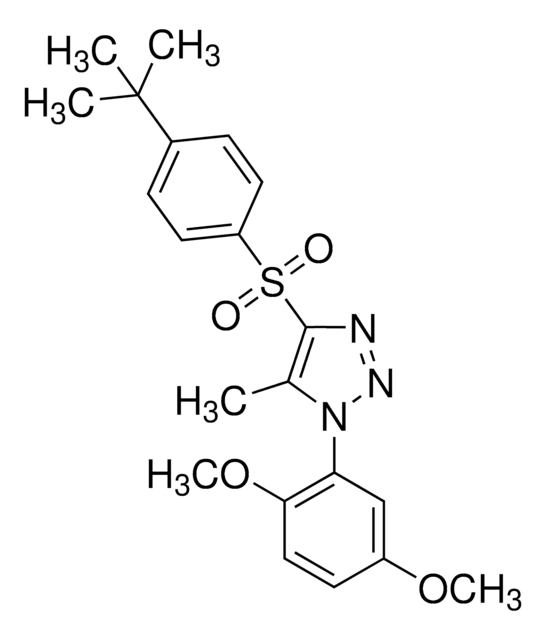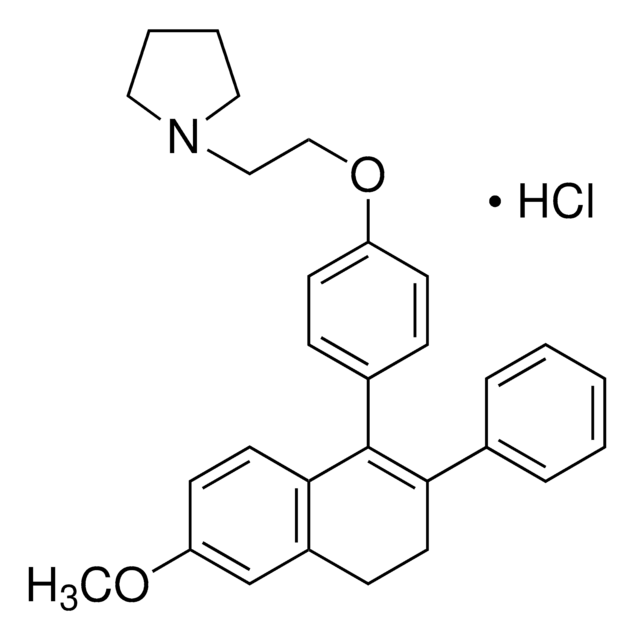ABN2268
Anti-proSAAS
serum, from rabbit
Synonim(y):
IA-4, Proprotein convertase subtilisin/kexin type 1 inhibitor, Proprotein convertase 1 inhibitor, pro-SAAS
About This Item
Polecane produkty
pochodzenie biologiczne
rabbit
forma przeciwciała
serum
rodzaj przeciwciała
primary antibodies
klon
polyclonal
reaktywność gatunkowa
rat, human, mouse
opakowanie
antibody small pack of 25 μL
metody
immunocytochemistry: suitable
immunofluorescence: suitable
western blot: suitable
izotyp
IgG
numer dostępu UniProt
docelowa modyfikacja potranslacyjna
unmodified
informacje o genach
human ... PCSK1N(27344)
Powiązane kategorie
Opis ogólny
Specyficzność
Immunogen
Zastosowanie
Immunofluorescence Analysis: A representative lot detected proSAAS in Immunofluorescence applications (Jarvela, T.S., et. al. (2016). Proc Natl Acad Sci USA. 113(32):E4708-15; Hoshino, A., et. al. (2014). J Neurochem. 128(3):419-30; Guest, P.C., et. al. (2002). J Endocrinol. 175(3):637-47).
Western Blotting Analysis: A representative lot detected proSAAS in Aβ immunoprecipitated from mouse brain lysates (Hoshino, A., et. al. (2014). J Neurochem. 128(3):419-30).
Immunocytochemistry Analysis: A representative lot detected proSAAS in SH-SY5Y cells (Jarvela, T.S., et. al. (2016). Proc Natl Acad Sci USA. 113(32):E4708-15).
Neuroscience
Jakość
Western Blotting Analysis: A 1:10,000 dilution of this antibody detected His-tagged mouse proSAAS recombinant protein.
Opis wartości docelowych
Postać fizyczna
Przechowywanie i stabilność
Inne uwagi
Oświadczenie o zrzeczeniu się odpowiedzialności
Nie możesz znaleźć właściwego produktu?
Wypróbuj nasz Narzędzie selektora produktów.
Certyfikaty analizy (CoA)
Poszukaj Certyfikaty analizy (CoA), wpisując numer partii/serii produktów. Numery serii i partii można znaleźć na etykiecie produktu po słowach „seria” lub „partia”.
Masz już ten produkt?
Dokumenty związane z niedawno zakupionymi produktami zostały zamieszczone w Bibliotece dokumentów.
Nasz zespół naukowców ma doświadczenie we wszystkich obszarach badań, w tym w naukach przyrodniczych, materiałoznawstwie, syntezie chemicznej, chromatografii, analityce i wielu innych dziedzinach.
Skontaktuj się z zespołem ds. pomocy technicznej








